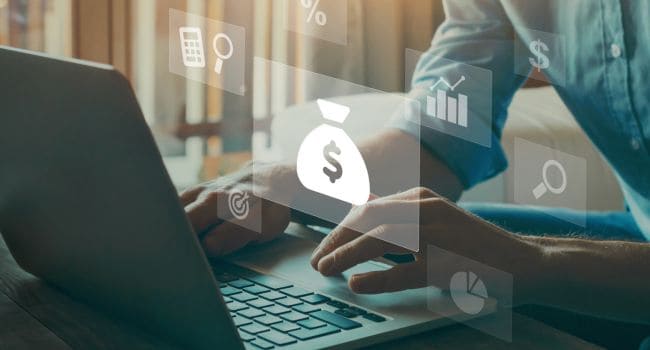
Imagine this: You’ve just received a significant windfall—perhaps from an inheritance, a bonus, or even a lucky lottery ticket. The money is sitting in your bank account, and you’re faced with a tantalizing question: Should you use it to pay off your debts or invest it for future gains? This is a dilemma that many people, especially experienced investors, grapple with at some point in their financial journey.
If you’re an investor with a knack for creating passive income and multiple income sources, this guide is tailored for you. We’ll delve deep into the intricacies of financial planning, helping you weigh the pros and cons of paying off debt versus investing your newfound wealth. Because let’s face it—when it comes to your money, making an informed decision is not just wise; it’s imperative.

When you find yourself with a sudden influx of cash, the two most obvious paths are like forked roads in a financial journey: paying off debt or investing for future gains. Each option has its merits and drawbacks, and the best choice often depends on your unique circumstances.
Pros:
Cons:
Pros:
Cons:

Contrary to popular belief, not all debt is created equal. While the term “debt” often carries a negative connotation, it’s crucial to differentiate between ‘good’ and ‘bad’ debt, especially when deciding whether to pay off loans or invest your windfall.
Characteristics:
Characteristics:
There’s also a middle ground—debts that can be either good or bad depending on how you manage them. For instance, a business loan could be a good debt if it helps you expand a profitable business but could turn into bad debt if the business fails.

When faced with the decision to pay off debt or invest, several factors come into play. These considerations can help you make a more informed choice tailored to your financial situation and goals.
Debt Interest Rates vs. Expected ROI: One of the most straightforward ways to decide between paying off debt and investing is to compare the interest rate on your debt to the expected return on investment (ROI) from your potential investments.
Emergency Fund and Financial Cushions: Before making any significant financial moves, ensure you have an emergency fund and other financial cushions in place.
Tax Benefits and Burdens: Some debts offer the perk of tax-deductible interest, which can make them more manageable in the long run. While mortgages and student loans are commonly known examples, other types of loans like certain business loans can also offer this benefit. For instance, interest on a loan taken to improve a rental property is often tax-deductible. On the flip side, certain investments may come with tax burdens, such as capital gains tax. Always consult a tax professional to understand the full implications.
Your Risk Profile: Your willingness to take risks plays a significant role in this decision. If you’re risk-averse, paying off debt may provide more peace of mind. If you’re comfortable with risk, investing could offer greater rewards.
To better illustrate the decision-making process between paying off debt and investing, let’s explore some hypothetical but relatable scenarios.
Situation: Jane has $10,000 in credit card debt with an interest rate of 18%. She also has the opportunity to invest in a mutual fund with an expected ROI of 7%.
Decision: In this case, the interest rate on the debt far exceeds the expected ROI from the investment. Jane decides to pay off her credit card debt, saving herself from accumulating more high-interest debt1.
Situation: Mark has a $200,000 mortgage with a 3% interest rate. He also has the chance to invest in a booming tech stock with an expected ROI of 15%.
Decision: Given that the expected ROI significantly outweighs the mortgage interest rate, Mark decides to invest in the tech stock.
Situation: Emily has a $20,000 student loan with a 5% interest rate and an opportunity to invest in a diversified portfolio with an expected ROI of 6%.
Decision: Emily opts for a balanced approach. She allocates some of her windfall to pay off a portion of her student loan and invests the rest in the diversified portfolio.

For those who have been around the investment block a few times, the decision to pay off debt or invest a windfall can be influenced by more advanced strategies. Here are some considerations tailored for seasoned investors:
Asset Allocation: Experienced investors often have diverse portfolios that include a mix of stocks, bonds, real estate, and other asset classes. A windfall can be an opportunity to further diversify your holdings, thereby reducing risk and potentially increasing returns. One advanced strategy to consider is geographic diversification. International markets often move independently of your home country’s economic cycles, offering a cushion against localized downturns, adding an extra layer of protection and opportunity to your portfolio.
Alternative Investments: For those looking to generate passive income, alternative investments can offer intriguing possibilities. These could include:
These alternative investments can provide a steady income stream while also offering the potential for capital appreciation.
If you’re an experienced investor, you likely already have a 401(k) or an IRA. These are great but often limit your investment choices.
While investing your windfall in a Self-Directed Retirement Account (SDIRA) can offer higher returns and more income streams for your retirement, it’s crucial to note that SDIRAs come with their own set of risks. These include the potential for loss and the complexity of managing a diverse range of assets. As with any significant financial decision, it is recommended that you consult with a financial advisor and do your research in order to understand these risks while maximizing your investment choices.
When faced with the fortunate dilemma of a windfall, the decision to pay off debt or invest isn’t black and white. As we’ve explored, various factors like the type of debt, tax implications, and your risk tolerance play a crucial role in this decision-making process.
Remember, the best financial planning involves a balanced approach. Paying off high-interest debt can offer a guaranteed return, while strategic investments can provide long-term growth and income streams. Always weigh the pros and cons, to devise a strategy that aligns with your financial goals and risk profile.
In the end, whether you choose to pay off debt or invest, the most important thing is to make an informed and thoughtful decision. Your future self will thank you.